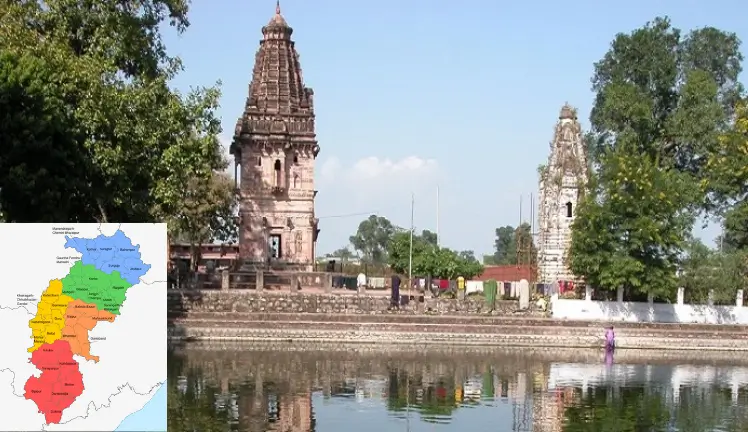A Pulse of Delhi-like Energy in Ratanpur
Far from the crowded chaos of urban India, Ratanpur holds a different kind of energy — subtle, sacred, and storied. Walk its streets, and you’ll feel time slow down. The rustling of peepal leaves, temple bells echoing in the distance, and conversations in hushed tones — this isn’t a city; it’s a whisper from the past. A whisper that still breathes.

Pin on the Map: Location & Access
Tucked in the northern part of Chhattisgarh, Ratanpur sits quietly about 25 kilometers from Bilaspur. Though small, it remains an important stop for those seeking spirituality and history. Roads wind through forests and villages before opening up to this serene temple town.
- By Road: Easily reachable by car or local transport from Bilaspur
- By Rail: The nearest major station is Bilaspur Junction
- By Air: The nearest airport lies in Bilaspur, with wider connectivity via Raipur
Despite its modest size, Ratanpur is surprisingly well-connected, inviting travelers from all walks of life.
Rooted in History of Ratanpur
Ratanpur’s soul lies in its history. Once a capital of a powerful dynasty, it rose and fell with the tides of time. While the royal processions have long faded, their echoes remain — in the architecture, the traditions, and the dusty paths once walked by kings and sages alike.
Stone inscriptions, broken gateways, and weather-worn temples reveal a forgotten chapter — a kingdom that once stood proud amidst forests and rivers. Today, the past doesn’t shout here; it simply waits to be rediscovered.
The Ratanpur Heritage Pulse
At the heart of Ratanpur stands a temple unlike any other — the Mahamaya Mandir. With its towering spires and intricate carvings, the temple draws pilgrims and curious travelers alike. It’s not just a structure; it’s the pulse of the town.
Dedicated to a form of the Divine Mother, this temple isn’t just visited — it’s felt. There’s a certain power in its silence, a stillness that embraces you when you enter its inner sanctum. Around it, smaller shrines quietly stand, forming a sacred circle that’s both spiritual and symbolic.
Sacred Sites & Fort Ruins
A short walk from the temple takes you to the crumbling remains of an ancient fort. Its walls, now entangled with roots and vines, once guarded royalty. Climb its steps, and you’re rewarded with a view that stretches over the hills and fields — a panorama of peace.
The town also houses shrines to Shiva, Hanuman, and other deities, each with their own lore, their own legends. It feels as though every stone here has a story to tell.
Read Also:
Rajouri Garden: A Pulse of Delhi
Sangola Maharashtra
Local Culture & Pilgrimage Flavor
Life in Ratanpur flows gently. People wake with the temple bells and sleep under starlit skies. During festivals, especially Navratri, the entire town glows — not just in light, but in spirit. Devotees arrive in hundreds, carrying offerings, walking barefoot, singing songs that have been passed down for generations.
Markets spring to life with clay lamps, bangles, flowers, and sweets. But even beyond the festive months, Ratanpur carries a spiritual rhythm. Locals offer hospitality like a tradition — with warmth and pride.
Final Reflections
Ratanpur isn’t loud. It doesn’t demand attention. Instead, it invites you to pause, to listen, and to feel. In its silence lies a deeper sound — of heritage, devotion, and timelessness. Whether you come here to pray, to explore, or simply to breathe, Ratanpur welcomes you not as a tourist, but as a seeker.